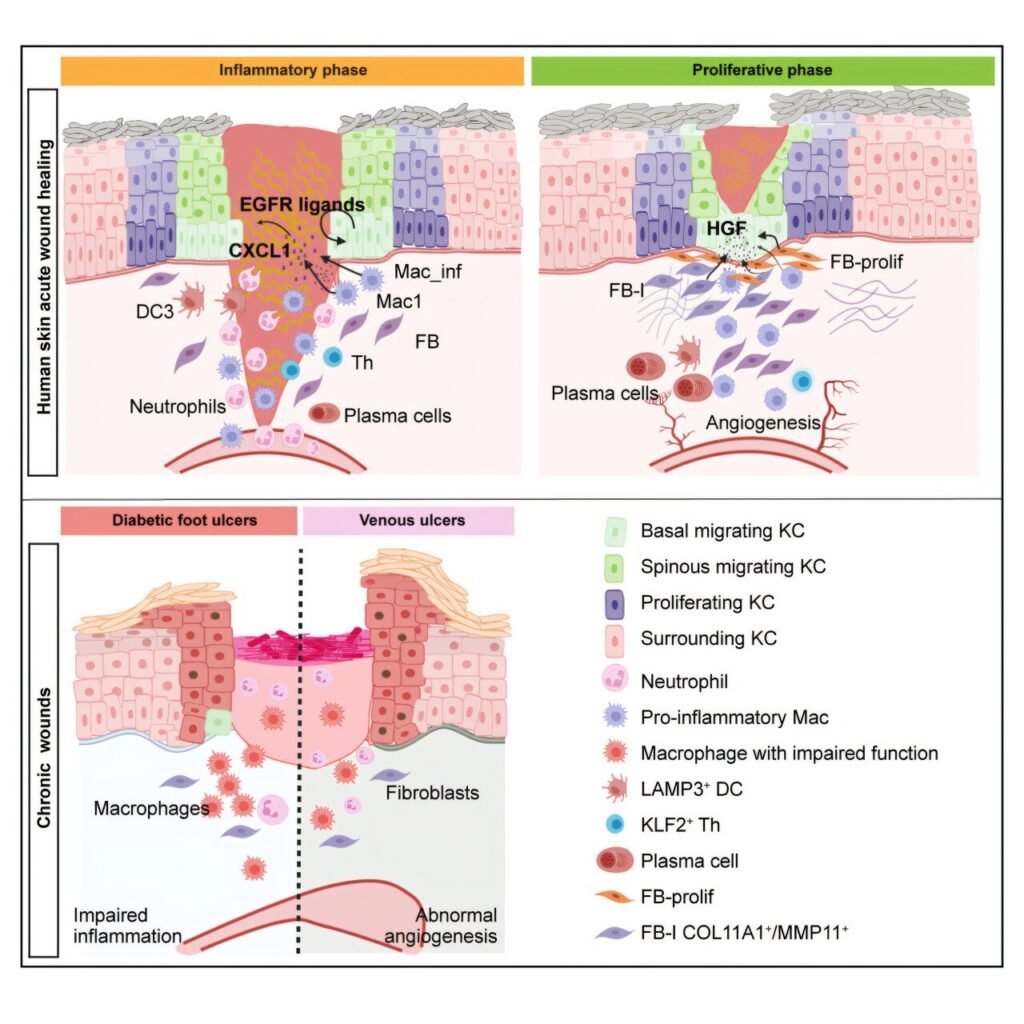A groundbreaking study conducted by researchers at Karolinska Institutet has provided new insights into the intricate cellular and molecular dynamics of human wound healing. The study, which was recently published in the prestigious journal Cell Stem Cell, offers a detailed understanding of how cells collaborate during the healing process.
The researchers focused on examining skin and wounds from the same individuals at different stages of healing: inflammation, proliferation, and remodeling. By utilizing advanced single-cell RNA sequencing and spatial transcriptomics techniques, they were able to track the changes in cells and molecules over time.
One of the key findings of the study was the identification of an important protein called FOSL1, which plays a crucial role in facilitating the movement of skin cells to cover wounds and promote healing. Additionally, the researchers observed that other cells, such as macrophages and fibroblasts, assist in this process by supporting the movement and repair of skin cells.
Furthermore, the study compared wounds from individuals with chronic conditions, such as venous ulcers and diabetic foot ulcers, to those with acute wounds. The comparison revealed that impaired cell movement can hinder the healing process in chronic wounds, highlighting the importance of addressing these barriers to promote effective healing.
The researchers also emphasized the unique characteristics of human skin wound healing, which differ significantly from animal models. This distinction is crucial for bridging the gap between basic research and clinical applications, paving the way for targeted interventions to enhance wound healing outcomes.
Overall, this study provides valuable insights into the complex mechanisms underlying human wound healing and offers potential avenues for developing novel therapeutic strategies. By unraveling the cellular and molecular dynamics of wound healing, researchers are one step closer to improving the treatment of chronic wounds and enhancing patient outcomes.
For more information on this groundbreaking study, you can access the original publication in Cell Stem Cell with the DOI: 10.1016/j.stem.2024.11.013. This research was conducted at Karolinska Institutet, a leading medical university in Sweden dedicated to advancing knowledge in the field of biomedical sciences.
This article was originally published on Medical Xpress on December 27, 2024. Please note that the content is subject to copyright, and reproduction without permission is prohibited. The information provided is for educational and informational purposes only.


